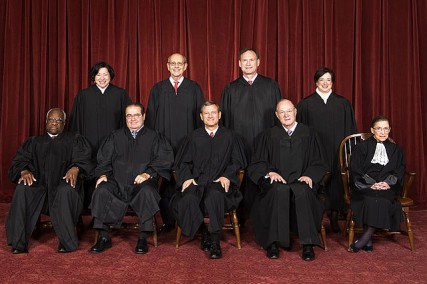
Last month I debated South Dakota law professor Patrick Garry concerning the Supreme Court case Greece v. Galloway where two residents of Greece, New York (Susan Galloway, who is Jewish, and atheist Linda Stephens) objected to the practice of city supervisor John Auberger replacing the a moment of silence at the board’s meeting with invocation prayers.
From 1999 until Galloway and Stephens’ objection in 2008 there were only Christian prayers given, often received with bowed heads and amens from the board. For a year an open line was instituted where prayer givers were given the mike on a first come, first serve basis (during which four of the 12 prayers were non-Christian) but after that all the prayers using this method were Christian.
An important issue was whether the climate of the prayers prejudiced the petitioning of non-majority believers (Stephens even received a warning letter to “stay away from town meetings”) and a district Appeals Court upheld their case. In a 5-4 divide, the Supreme Court has decided to continue trying to navigate a middle course where local venues are given wide berth even when it comes to sectarian prayer.
Advocates such as Garry had hoped the court would significantly revise the Establishment Clause interpretations currently governing such cases, effectively overturning the Court’s ambivalent ruling in 1983 (Marsh v. Chambers) allowing the Nebraska legislature to retain its sectarian Christian invocation prayer and allowing any religious community to popularly institute whatever activities they liked in government if they were in the majority.
While the court didn’t go as far as Garry (or Scalia) might have liked (Kennedy appears to have played the decisive “moderating” role here), the decision still raises significant issues on the role of minority views, as Justice Kagan noted in her strenuous dissent. I wasn’t terribly surprised by the Supreme Court decision, falling into the middle option that I laid out in my debate argument with Garry.
Interested readers can view it all online (48 minutes including the Q&A) at the Seattle University School of Law’s Federalist Society website.





